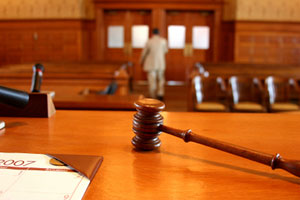The New Hampshire Supreme Court has dismissed testimony from a lead paint expert witness in a lawsuit against landlords accused of providing unsafe housing. The suit, which has been ongoing for nearly 10 years, may be nearing a conclusion as the plaintiffs are left without a key piece of testimony after the court’s decision.
Somali Refugees file Lead Paint Lawsuit
From 2005 through 2006 a group of Somali Bantu refugees lived in apartments owned by Wen Lin, a landlord in Manchester, New Hampshire. After several members of the community got sick, 20 of the refugees filed a lawsuit alleging that the apartments were contaminated by lead paint, which is a known hazard. The plaintiffs claimed that the defendants had provided an unsafe living environment which caused injury to the community members who lived there.
As with any injury lawsuit, the plaintiffs were required to prove that they suffered a legally actionable harm as a result of the defendant’s behavior or negligence, and in this case that meant the Somali refugees had to show they suffered an illness or injury as a result of exposure to lead paint. In order to satisfy their burden of proof, the plaintiffs hired a lead paint expert to evaluate their injuries and testify in court that the defendant’s apartment was the likely cause of harm suffered.
Lead Paint Expert Witness Submits Report to Trial Court
The Somali Bantu refugees attempted to demonstrate that their injuries were caused by their living conditions by having lead paint expert witness Dr. Peter Isquith, a trained clinical neuropsychologist, to conduct tests on 17 children of the plaintiffs. Dr. Isquith used two scientific measures in order to determine that the children suffered from a neurological condition which was “more likely than not” caused by lead paint in their living quarters.
In order to make this determination, Dr. Isquith used two common neurological tests which are designed to measure verbal and non-verbal intelligence and general intelligence. The tests are separated into a series of questionnaires which examine cognitive function, attention, language, memory, and learning, and social perception. According to Isquith the plaintiff’s children standardized scores fell in a lower percentile when compared to standardized scores of other children who were not exposed to the same levels of lead paint.
Dr. Isquith used his results to argue that the alleged harm suffered by the plaintiffs not only was real, but was caused by the apartments provided by the defendant. During trial, the defendants motioned to exclude Isquith’s testimony, and after a lengthy evidentiary hearing the trial judge excluded the plaintiff’s expert for failing to account for specific conditions of the plaintiffs.
New Hampshire Supreme Court Strikes Lead Paint Expert Witness
On appeal, the New Hampshire Supreme Court closely reviewed the methodology Isquith employed and agreed with the trial court that he had not met the scientific standards required of expert witnesses in the state. The Court affirmed the trial court’s position by writing that the tests Isquith had used failed to consider the differences between Somali children and his comparison group, or consider how “normal, healthy” Somali children would perform.
Without a baseline for comparison, the Court determined that the plaintiff’s expert witness had not provided sufficient scientific justification for his conclusions regarding the lead paint injuries. Further, Isquith’s work had not been reviewed by peers, and was fraught with uncertainty which made it akin to “guesswork [which] would not assist the jury in arriving at a fair and just verdict.” Accordingly, the Court found that Isquith had not met the threshold for expert witness reliability in New Hampshire.
The case serves as a reminder that well qualified and educated expert witnesses can provide seemingly meaningful analysis which cannot pass legal standards. Courts, particularly courts which operate under standards adopted in Daubert ant its state-level progeny, are required to look beyond expert qualifications and closely examine whether or not expert analysis reliably connects the facts of the case to scientific conclusions.












